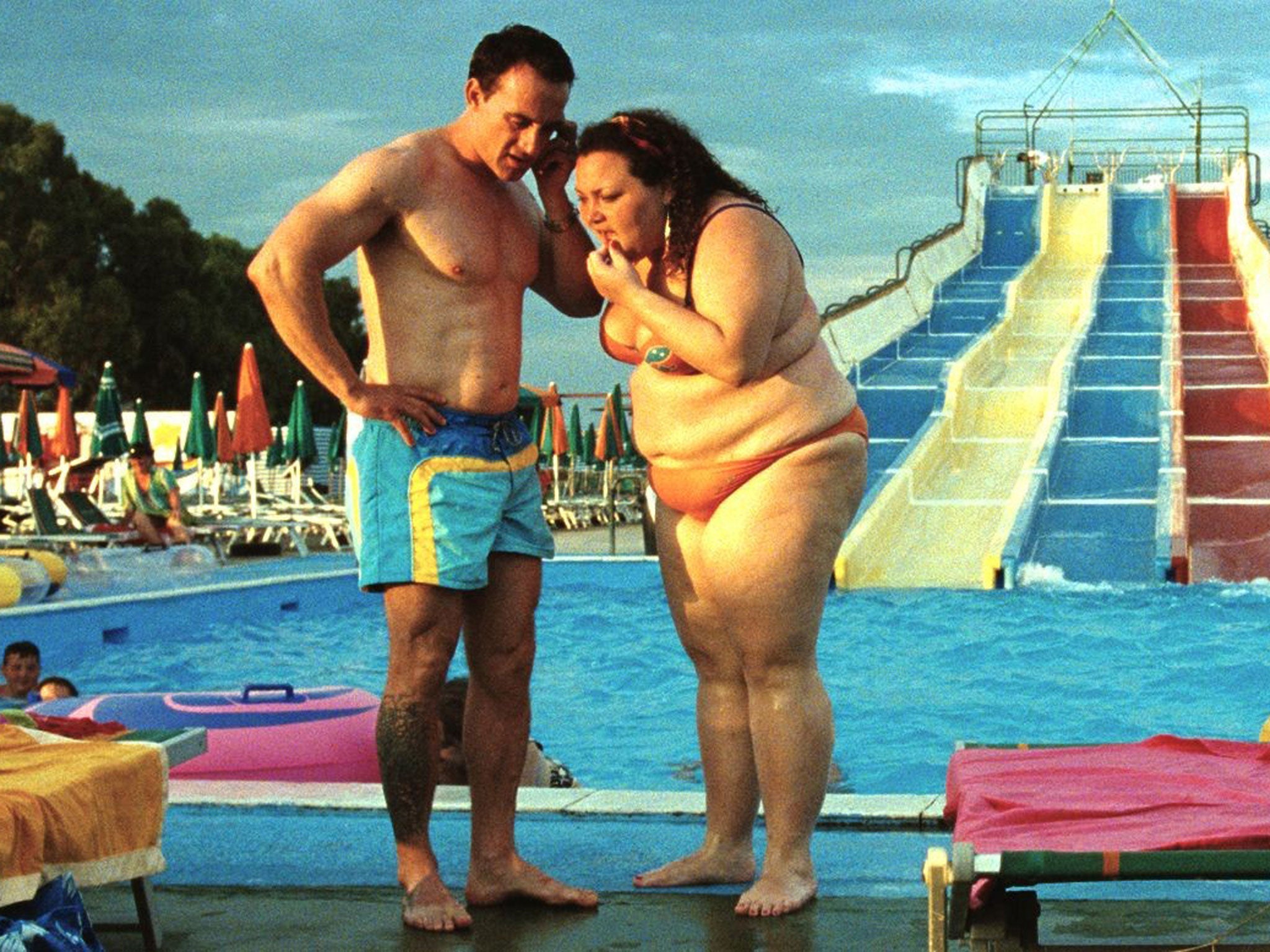Film review: Reality - The long slippery slide of the fame game
(15)

Pity the Italian satirist. When your country's politicians can outdo anything in grotesque and idiotic venality you imagine through a work of art, you know it's uphill all the way. Why aim for burlesque when you already have Berlusconi?
The writer-director Matteo Garrone has nevertheless grasped the nettle and targeted a subject that's close to the heart of a people passionately devoted to confession and display: reality TV. In the drama Reality, he gives us a man who would sell his soul for a chance at fame, if only he could find a buyer.
Garrone burst on to the scene in 2008 with Gomorrah, his scalding and unglamorous chronicle of Neapolitan mafiosi and their cowed victims. This new film returns us to Naples, where Luciano (Aniello Arena), a thirtysomething family man, is operating a pensions scam in cahoots with his wife, Maria (Loredana Simioli). But this is no crime story. Luciano is a local fishmonger who's a born showman, dragging up in a blue wig to entertain at the garish wedding party that opens the film. And lo! He's instantly overshadowed by the arrival of Enzo, a celeb red-hot from his time in the Grande Fratello house, Italy's version of Big Brother. As he watches Enzo dominate the scene and then depart by chopper, some dreadful longing is born in Luciano's heart.
His opportunity knocks when Maria and the kids, plus their entourage of aunts and cousins, summon Luciano to an audition for the next Big Brother at a shopping mall. With his slight frame and Mr Punch chin, he doesn't appear a natural-born TV star, but he gives it a go and reports home bright-eyed with triumph: "I said things I never even told my pa!" Another audition, this time in Rome, is offered, by which time he's fully engaged in the fantasy of a life on Planet Celeb. The film doesn't show his auditions, significantly, but the camera keeps close to monitor his changing behaviour day to day. Convinced that the TV people have put spies on him in preparing their final selection, Luciano goes off the deep end: he sells off his fish stall and emulates St Francis by giving away his worldly goods to the poor. His obsession with the show becomes pathological, and his relationship with Maria begins to fall apart.
Is this indictment of celebrity worship a little obvious? Perhaps. We know rather too much about the affliction to be surprised, most of it gleaned from movies. When Robert De Niro's Rupert Pupkin said, "Better to be king for a day than schmuck for a lifetime" in The King of Comedy, he articulated a credo for the ages. Luciano's predicament feeds on that most potent of psychological ills, self-delusion, and no amount of reasoning will wean him off it. Few are more qualified to play this trapped man than Aniello Arena, who has learnt to act in prison theatre since he began serving a life sentence for murder 20 years ago. (He was released on a day pass for filming, then returned to his cell.) Arena's lived-in looks and air of thwartedness suit both the role and the film's ambiguous climax, where Luciano's laughter may signal either his descent into madness or else an acknowledgement of his folly. By the end we want to know how a TV programme of such pathetic vulgarity could become the apogee of an ordinary man's ambition, but Garrone's film is at a loss to explain. What could? Luciano's story represents the warping not of one man but of an entire culture.
Subscribe to Independent Premium to bookmark this article
Want to bookmark your favourite articles and stories to read or reference later? Start your Independent Premium subscription today.

Join our commenting forum
Join thought-provoking conversations, follow other Independent readers and see their replies